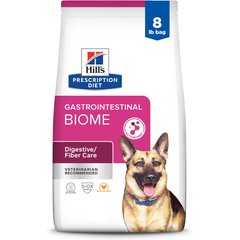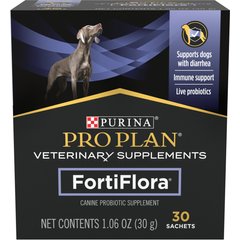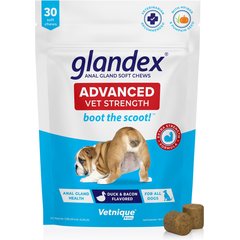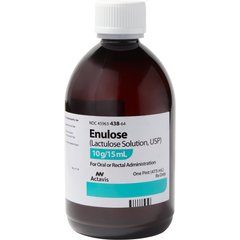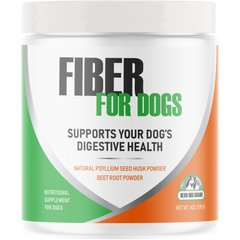Dog Constipation: Treatment and When To Call Your Vet
PPAMPicture/E+ via Getty Images
Dog constipation is a common condition in pups characterized by straining, discomfort, and difficulty defecating. Although constipation is uncomfortable, it’s treatable, and most dogs return to normal quickly following treatment.
Pet parents who suspect their dog is constipated should schedule a veterinary appointment for proper diagnosis and treatment.
Health Tools
Not sure whether to see a vet?
What Is Dog Constipation?
Dog constipation refers to a difficulty passing feces or having infrequent bowel movements. It commonly occurs in dogs for various reasons, ranging from not eating enough fiber to more serious conditions, such as an intestinal blockage.
Constipation occurs when a dog’s colon absorbs a large amount of water from the feces.
Dog constipation can be considered a medical emergency because it's extremely uncomfortable for dogs and may increase in severity if left untreated.
The longer the feces sit in the intestines, the more water is absorbed, leaving the feces dry and hard. Dogs still have the physical urge to defecate and will noticeably crouch to try to pass feces.
Dogs will experience discomfort when trying and may pass only small, hard pieces of feces—or none at all.
Causes of Dog Constipation
There are numerous causes for dog constipation, including:
-
Not eating enough fiber
-
Low-quality diet
-
Dietary indiscretion, such as swallowing pieces of a toy
-
Intestinal parasites, such as roundworms
-
Intestinal blockage
-
Trauma to the hind end
-
Spinal problems, such as intervertebral disc disease (IVDD)
-
Medications, such as diuretics
-
Endocrine disease, such as hypothyroidism
-
Megacolon (muscles of the colon dilate and become ineffective at moving stool through)
Is Dog Constipation an Emergency?
Dog constipation can be considered a medical emergency because it's extremely uncomfortable for dogs and may increase in severity if left untreated.
If your dog is having difficulty passing feces but is otherwise acting normally, it’s generally okay to wait a day to see if the issue resolves on its own.
However, if your dog is experiencing the following symptoms, call a veterinarian promptly for an appointment:
-
Pain
-
Lack of thirst
Similarly, if your dog has not passed feces for two to three days, it’s important to see a veterinarian to determine the underlying cause.
How Veterinarians Diagnose Dog Constipation
To diagnose dog constipation, your veterinarian will start with a thorough history to gain insight into your pup's normal bowel habits and factors that may contribute to the current situation.
The veterinarian will ask when your dog last defecated, details about the appearance of the feces, and if your dog is straining to defecate.
Tell your veterinarian about your dog’s eating and drinking habits as well as any medications your dog is taking.
Your veterinarian will complete a thorough physical exam, including abdominal palpation (gently feeling your dog’s belly to check for signs of discomfort or swelling).
If your vet suspects your dog is constipated, they may perform tests to determine the underlying cause. Diagnostic testing may include:
-
X-rays: An X-ray of your dog’s belly allows the veterinarian to see the colon to determine if it is distended, if the stool has an abnormal appearance, or if any abnormal objects or blockages are present. X-rays may also be taken if there is a history of trauma to the hind end or if your vet suspects spinal issues.
-
Fecal float: A small fecal sample is collected and mixed with a special solution that makes parasite eggs float so they can be viewed under the microscope. This test is performed to diagnose intestinal parasites that can contribute to constipation.
-
Orthopedic exam: A veterinarian can fully assess your dog’s hips and joints to see if they have an underlying orthopedic disease, such as arthritis, that makes getting into a position for defecation difficult.
-
Rectal exam: A veterinarian can use a gloved hand to feel feces in the colon for abnormalities and to rule out prostate enlargement. The anal glands can be gently expressed to detect signs of inflammation or infection.
-
Blood work: Blood tests can help your vet identify underlying diseases, such as hypothyroidism, that can in some cases cause constipation.
Treatment of Dog Constipation
The treatment for dog constipation depends on the underlying cause.
For many dogs, increasing water consumption fixes the issue. Pet parents may add a tablespoon of unsalted chicken broth to their dog’s water bowl to entice them to drink more water.
Other dogs may need fiber, such as a small amount of canned pumpkin, added to their food.
Other treatments for a constipated dog may include:
-
Fluid therapy (given under the skin or through a vein)
-
Switching to a high-quality diet, such as Hill’s® Prescription Diet Gastrointestinal Biome
-
Probiotic supplements, such as FortiFlora®
-
Enemas
-
Manual removal of feces by a vet using a gloved finger
-
Deworming medicine, such as pyrantel pamoate
In severe cases, dogs may need to be hospitalized while receiving treatment.
Surgery may be necessary if the dog has eaten something that is stuck in the intestines or for advanced spine or joint issues that may contribute to constipation.
Recovery and Management of Dog Constipation
Most cases of dog constipation resolve in a few days with treatment. Following treatment, the veterinarian may recommend a maintenance medication or supplement, such as psyllium powder, to prevent future episodes.
Dogs who are constipated due to an intestinal blockage and who require surgery will have longer recovery times.
It can take seven to 10 days or longer for the incision to heal and for the dog’s gastrointestinal tract to start moving normally again.
Prevention of Dog Constipation
Pet parents can help prevent dog constipation by ensuring adequate water intake. It’s also important to feed a high-quality kibble and prevent your dog from eating things they shouldn’t.
Regular wellness veterinary care can promote overall health and well-being while also catching health concerns, such as intestinal parasites, early on.
If your dog is prone to constipation, your veterinarian may recommend a regular fiber or probiotic supplement to promote gut health.
Dog Constipation FAQs
How can I tell if my dog is constipated or has a blockage?
If your dog is passing very hard and small feces, passing feces infrequently, struggling to defecate, or not passing feces at all, they should be assessed by a veterinarian to determine the underlying cause.
How long is it okay for a dog to be constipated?
There is no general guideline regarding how long a dog can go without passing feces. However, if it’s been two to three days since your dog has defecated, it’s a good idea to reach out to your veterinarian.
If your dog is also experiencing other symptoms, such as reduced appetite or vomiting, have them evaluated by a vet sooner.
Will dog constipation resolve itself?
Sometimes dog constipation is temporary and resolves on its own without treatment.
However, this is largely dependent on the underlying cause. Many cases, such as those where a dog has ingested something inappropriate, will require treatment.


